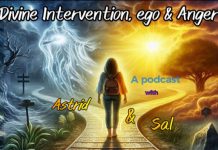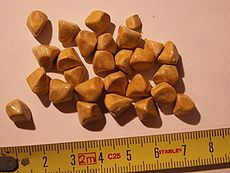- Introduction
- Emotions– we are all subject to them even when think we are cut off
- Religions and the concept of forgiveness
- How difficult can it be to forgive another?
- Can we forgive others if we don’t even like ourselves?
- Forgiveness and Anger
- The Heart
- In conclusion
Introduction
Who doesn’t know that forgiving others is a good act? occasionally we read or hear in the news of invariably a Christian forgiving someone who raped and or killed their child. How many of us go through life unable or unwilling to forgive one or more of our parents? We read of vendettas lasting hundreds of years.
In the Old Testament, Exodus 21:23-27 we can read an eye for an eye or retribution in equal measure. In the New Testament Matthew 18:21-22 he encourages forgiveness as many times as it takes although it is not clear to me if he would accept this principle when it came to physical harm of another.
Forgiving is a spectrum of colors from stygian dark to barely grey Someone may hurt us, our family, or others close to us physically, emotionally, and/or mentally, they may rob us of money, position, or property, and they may lie to us. It would be fair to say that many of the categories apply to humans whose personalities are highly damaged and whose behavior runs from narcissistic, to sociopathic, all the way to full-blown psychopathic.
Sometimes forgiveness is as simple as pausing to realize that we had a misunderstanding and having the good manners to apologize. but in this article we are more concerned with the deep hurt we carry from our youth, so deeply buried that it colors the whole of our personality and if we have any awareness of it is localized to our reactivity in relation to others.
Emotions– we are all subject to them even when think we are cut off
Whilst the subject of this article is forgiveness I wish to begin with the subject of emotions which broadly speaking could be divided into good – as in the physical, emotional, and mental working together, versus self-limiting – where the mind-emotional-physical connection is disrupted.

Fear is a great emotion. It is the basic motivation of our organism to protect us. It will spark our bodies via the hormonal system and mind into action to fight or flight.
Fear can be constrained by the mind (rules/ indoctrination), and can paralyze our actions, turn us into blabbering jellies, interfere with our thinking process and go blank, or disassociate us from our other two centers so that it seems we are out of our bodies. Such a fearful state is a terrible experience.
Rage is a disempowering emotion – we go through life suppressing our righteous anger as a result of childhood traumas, and in the process perceive ourselves as victims of our environment. Now and then our resentments build up, and at such times we are likely to snap at an undeserving human whom we will instinctively perceive as less strong than we are. (ie. social standing, financial, age, etc) our behavior is bullish and cowardly.
Anger is the greatest of emotions. It arises out of positive fear that we are in danger, this could be from the environment or other people. It galvanizes all our physical, emotional, and mental systems into action. We are cool, determined, and willing to do what we must to defend our personal space and or perceived injustice of fellow human beings.
Any human being flowing with their anger is powerful. Bullies retreat from such a human, others maintain a respectful distance. In a World of slaves, such connection with oneself is discouraged from very early in one’s life. Anger defines our boundaries, be it physical, emotional, and/or verbal It galvanizes the whole of our system to defend our integrity.
What has the above to do with forgiveness? Everything! Please indulge me as I continue to develop this theme.
To say that we have been manipulated and conditioned into subservience is no great mystery, and the tools to condition us are fear and suppression of our sense of self-worth with the accompanying fragmentation of our personalities. We can also add poisoning us with the wrong foods, pharmaceuticals, and chemicals in the environment, as well as limiting our attention spans via newspapers and social media.
Let me start with religion, everybody’s favorite dinner topic.
Religions and the concept of forgiveness
When I was a young lad I was much taken by the sermon on the Mount from Matthew
Of course, in those days I was searching for spiritual peace by dissolving my ego. Turning the other cheek was an aspiration for “being good”.
++++++Potential trigger alert for those with deep conviction+++++
[Please note it is not my intention to upset anyone’s deeply held beliefs, my focus is on being a healthy fully functioning human being. If you want to live in a bigger house you may need to take down some walls. IF, you are not ready to step up and question some deeply held assumptions then please read no further.]
I am going to take a stab at the assumptions of Christianity because they have pinned their colors to the wall with their version of forgiveness, the sermon on the mount, and Jesus sacrificing himself so that our sins may be forgiven.
Still reading??? I am not responsible for your emotional states, You are not a victim, Continuing to read is your choice no one is forcing you!
I was raised a catholic and for the avoidance of any doubt, I firmly believe that there is an overriding Intelligence we call God or the Maker of All Creation. I say this because I am intimately connected to a 12th-dimensional fragment of the One Soul who works with and through me in helping clients and even writing these articles.
That there is something Greater than us is not in doubt by me. What I question is the use of and beliefs created by other damaged beings in the past which are still in use today to control the present.
Yes, human beings are machines, BUT, there is a soul fragment intimately connected with each life from the smallest to the largest, as well as all the material bodies such as planets and stars in the Universe. And I perceive God’s Will imbuing every speck of matter in the Whole of Creation whether animate or inanimate.
Let’s begin with Christian congregations being perceived as unquestioning flocks of sheep who are regularly fleeced for their donations and tithings. With the concept of sin constantly dangled in front of them they are encouraged to forgive others. And to go to confession to be forgiven for their trespasses. errr… not quite, watch this video made in Canada in 21/22 mindless sheeple anyone? It would be a mistake to look up to priests or preachers as though they are a conduit for a higher Authority!
Matthew 6:14-15
“For if you forgive men when they sin against you, your heavenly Father will also forgive you. But if you do not forgive men their sins, your Father will not forgive your sins”
On the surface, the sermon on the Mount is very appealing. Unfortunately, it contains a lot of caveats and assumptions. And, is a complete aberration and disempowerment of a human being on several fronts.

Sin appears to be a catch-all phrase to keep mankind in a constant state of guilt and subjugation, beginning with shame about one’s body needs, but we won’t go there. The assumption here is that there is a Father God who will judge our behavior and our personality, and if found wanting will NEVER forgive us. Heaven/ eternal damnation.
In many religions, we ascribe qualities to this God as though he partook of human form with qualities such as judgment, lack of forgiveness, retribution, and eternal punishment. These are all qualities inherent in a damaged ego, and only a damaged and simplistic ego could conceive of such a damaged Maker.
There is another possibility as to how this Maker of ALL might view us. (Frankly, that is open for debate, for in the scheme of Creation we are smaller than grains of sand on a beach.) Such as -with love, compassion, and complete and utter acceptance. And most certainly – sinless, since in an ultimate sense we are created with and by its Will.
When Christians speak of human sin they refer to the damage created in our egos simply by being born into this world, and often what is sinful is our rejection of their indoctrination be it religious and or cultural.
When it comes to GOD or any Higher Authority from the Soul Dimension- Forgiveness is an Alien concept for there is no judgment on any of our lives, however despicably the psychologically/emotionally damaged physical vehicle behaves. This does not apply to inter-relations between human beings where Judgment of others’ behavior and forgiveness is a central pillar of survival, both concerning others as well as within ourselves.
How difficult can it be to forgive another?
As we come into this world, within a few years of being surrounded by damaged egos we become afflicted and damaged. Christianity’s messengers would have you stay as damaged as they already are, as one more sheep- part of the flock. Simultaneously, you are expected, nay commanded! to forgive others for their trespasses. And ask for forgiveness for yours all in the name of some Mythical and Divine personage who is keeping a very, very close eye on you, and keeping a tally of your trespasses.
Heck, you can’t even forgive yourself! You need to confess to another damaged and indoctrinated being who allegedly has a special dispensation, by that God that has YOU constantly under supervision, to act on Its behalf and give you absolution as a precondition to enter the by now (since humanity was first created) overcrowded Heaven. And we are not even talking about other souls in the rest of the galaxy, let alone the infinite universe.
As I said we are damaged egos and as a result of this damage with have problems with forgiveness. How can you like yourself if you believe that you are born in sin? Forgiveness requires understanding, compassion, and empathy. And yes there are levels of forgiveness from minuscule to existential.
I would like to unpack this easy yet complicated package related to the issue of forgiveness.

Being mindful that our experience of the world outside our skin is a reflection of our inner worlds,
I will say It is impossible to forgive another unless we are flexible enough to forgive ourselves First.
That it is impossible to forgive another if coerced by fear, whether temporal or spiritual. Your fear of hell may be enough to forgive with your head, but is not enough motivation to forgive emotionally.
It is impossible to forgive another whilst we still harbor resentment and see ourselves as victims of others’ transgressions. We could easily delude ourselves in our piousness and even act like we have forgiven but it will be false. And will leave us with a thorn deep in our hearts.
Forgiveness IS essential to be a balanced and carefree human being but not at the cost of suppressing our self-worth and behaving like a sheep defanged of our anger, which is what being indoctrinated by the Christian writings’ of Mathew and others will do for you.
Matthew 18:21-22 – Then Peter came up and said to him, “Lord, how often will my brother sin against me, and I forgive him? As many as seven times?” Jesus said to him, “I do not say to you seven times, but seventy-seven times.
What Mathew writes is unacceptable to ANY self-respecting human being. WE are not made to be door mats for others to wipe their dirty soles on. He is in fact encouraging us to behave like sheep, docile and powerless. Why? For some potential future reward of the spirit? Perhaps to keep us meek towards temporal and/or spiritual authority?

That is not how life works and it most certainly is not how forgiveness works. In America, the founding Fathers understood this very well hence the 2nd amendment to the Constitution Concerning self-protection. You try upsetting a lion once, let alone a second time.
We don’t need to go to extremes. My point is, that each of us is entitled to self-defense. If someone. Behaves unacceptably towards you. saying “I forgive you” and they do it again, means your ego is damaged and fearful of your righteous anger. And in effect, you give up your boundaries. (remember anger is NOT rage).
We live in an allegedly safe society where we are supposed to be protected from any violence by the powers that be. However, If someone’s behavior is unacceptable be it mentally, emotionally, and or physically at the very least we move away from them.
It is impossible to forgive without understanding the human we are in conflict with, and even, once we have understood, we need to separate forgiveness from acceptance. For example, I will forgive the actions of a sociopath for the simple reason that the human vehicle is damaged possibly beyond repair. It does not mean that because I have forgiven their actions I will put up with a second act of disrespect, lying, or abuse, which could be described as masochistic behavior by me. Nor will I forget that the individual is bad news, and I don’t want them anywhere near my life.
This whole concept of turning the other cheek is dogma for slaves. Free human beings respect themselves and defend their boundaries. Those who don’t have been damaged, and fear the expression of their righteous anger.
Can we forgive others if we don’t even like ourselves?
The above is a very superficial rendition of the problem.
Firstly let us focus on self – are we comfortable with the thoughts in our heads, with our sexuality, with our physique -do we like ourselves? , are we kind to ourselves? are we comfortable with the images that come unbidden to our minds, with the emotions that arise unexpectedly, are we critical of ourselves, judging ourselves, telling ourselves off about our behavior, if we are unable to come to terms and forgive parts of our damaged nature how can we hope to forgive others?
Self-forgiveness of our damaged natures is not a carte blanch to behave immorally with others.
When I appreciate how damaged I am I will be cognizant of the damage in others.
I will not accept damaging behavior arising as a result of introjected mental programs toward myself any more than I will accept damaging behavior from others.
Most conflicts between people arise out of misunderstandings because the mental script in our heads gets in the way of hearing/understanding the other human or animal’s point of view or motivation. And then we react to the expression of their actions whether physical, verbal, or imagined by us.
Quite often in therapy when we work with suppressed anger we will come to the point when the clients need to forgive someone from their past, they go through the words but when confronted afterward their forgiveness has been a mental construct, not an emotional experience.
They can’t forgive as long as they feel hard done by. Their sense of victimhood and their suppressed anger make it impossible for them to forgive the human they consider responsible.

These humans grow up bottling their anger and now and then, they will behave spitefully, or, will react in rage towards themselves or another.
So here is the pattern:
Forgiveness and Anger
I perceive someone doing me some wrong. I am hurt, but if I express my hurt I may lose that human’s affection, or I am too little to stand up for myself. So |I bottle my hurt and pretend all is fine, and with it goes my anger. With my ‘submission,’ I lose self-respect and self-worth. I can’t trust that human who may have been a parent. That human will likely behave in that manner again.
As I grow up I have moments of rage when I explode.- always directed towards someone whom I perceive to be weaker than I am. Depending on how twisted I have become I may experience guilt, fear, or even sadistic satisfaction. What will be missing from my emotional arsenal is – Anger.
To truly forgive another we may need to experience and express in our bodies the anger we never experienced when the deed was done to us. Only when we have fully expressed and understood the source of our anger which may even be based on faulty memory, or even misunderstandings can we contemplate forgiveness.
Releasing our previously suppressed anger from our bodies will allow us to make a proper judgment. Was that human damaged, irresponsible, or deliberately hurtful? We need to experience the world from that human’s perspective, only then can we take the next step towards forgiveness, but remember, to forgive someone does not mean we condone their previous actions or have to accept them back into our lives.
If they are damaged and likely to repeat their transgressions we can forgive them because we understand their damaged motivations, but we must then allow/insist them to go out of our lives.
The Heart
The heart is a place beyond our personality and yet it requires ALL of our emotions to be freely available. This in itself is a conflict of interest for the average human, for our emotions crave intimacy with others to know and be known by others. Yet, if others are too damaged and we open our hearts to them the subsequent emotional pain will be excruciating.
You say “I have experienced the heartache of a relationship ‘gone wrong”. It is not your heart that is in pain although it seems like it, rather it is the connection between the emotions and the heart that your mind is desperately trying to close, via the tension that you experience in your diaphragm and intercostal muscles as though you are suffocating.
Being so-called ‘Spiritual’ doesn’t have to mean wearing your heart on your sleeve. It does not mean focusing on others at the expense of your own needs. it does not mean being a goody-goody doormat for others. Only fools have a doorless heart.
We need access to our hearts to be flexible when it comes to personal relationships. We need to shut the door to those who are too damaged and pushy, and open the door to those we want to be intimate with and who can reciprocate.
In conclusion
Initially, we need to forgive ourselves as a prelude to being able to forgive another. This is a hard enough task for most people. without self-love, we will struggle with forgiving our parents.
Most of us are unlikely to be tasked with forgiving a murderer, or other cruel and sadistic damaged humans. More than likely it will be related to forgiving a parent or carer from our youth. and the suppression of our anger will be the price we paid at the time. It is important to forgive them if we are to re-own our righteous anger.
Remember Anger is another word for self-worth and the defining of our boundaries which we are willing to protect at any cost.
How do we forgive a parent/carer? Well, with great difficulty, we harbor a lot of pain and that needs to be experienced and released. We then need to appreciate that our parents are the result of their parents and so forth. We have all been damaged by the previous generation, they more than likely did their best for us within their limitations. But I assure you that within their psyche there was a part that truly loved you.
Look at yourself, you are damaged, there are parts of you you dislike, and there is a part of you that loves your children. Your parents were probably even more dysfunctional than you, there will nevertheless be a part of them that truly loved you.
To forgive does not imply condoning someone’s behavior. We forgive because we place ourselves in their shoes and appreciate that they are broken, as we all are. But they may be too broken for us to continue any involvement with them for it is important to value ourselves first.








